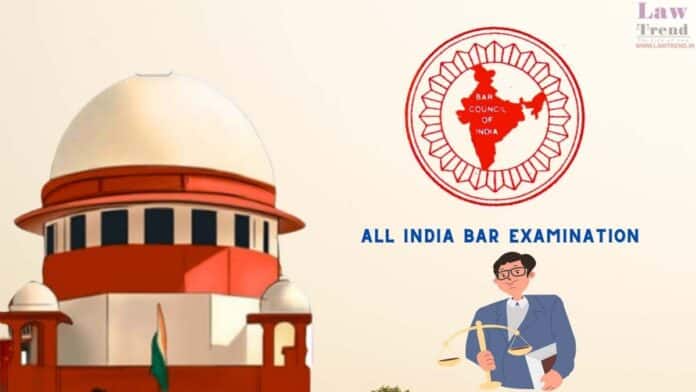In a hearing held today, February 24, the Supreme Court directed an advocate, who appeared as a petitioner-in-person, to first approach the Bar Council of India (BCI) regarding his grievance about the All India Bar Examination (AIBE) fees. The advocate challenges the BCI’s current fee of Rs. 3,500 for the examination, claiming it violates the court’s earlier decision in Gaurav Kumar v. UOI (2024), which limits the enrolment fees to Rs. 750 and Rs. 125 for general and SC/ST category advocates, respectively, as outlined in Section 24 of the Advocates Act, 1961.
During the proceedings, the bench, consisting of Justice JB Pardiwala and Justice R. Mahadevan, granted the petitioner the freedom to make a representation to the BCI, suggesting he return to the Supreme Court if he either receives no response or is dissatisfied with the response within a reasonable timeframe.
Justice Pardiwala, in a notable oral remark, highlighted the financial needs of the BCI, emphasizing the importance of the fees for its survival and operational functions. He provocatively commented on the petitioner’s argument by stating, “Once you pay this amount of Rs. 3,500, you will start earning Rs. 3,50,000. What is the problem in initially paying Rs. 3,500 to BCI?”
Additionally, Justice Pardiwala raised questions about the petitioner’s decision to invoke Article 32 jurisdiction, suggesting that the matter might have been more suitably addressed at a High Court.
The petitioner contended that the fee structure imposed by the BCI hinders the fundamental rights of young advocates eager to practice law, arguing that it infringes upon Articles 14, 19(1)(g), and Section 24(1)(f) of the Advocates Act.




